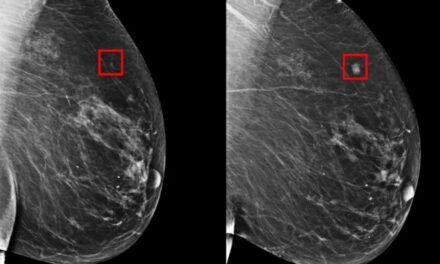April 8, 2024
In a groundbreaking advancement in breast cancer treatment, researchers at The University of Texas MD Anderson Cancer Center have unveiled a novel approach that promises to revolutionize patient care. The pioneering strategy, detailed in a Phase II trial published in JAMA Network Open, involves altering the sequence of breast cancer treatment to administer radiation before mastectomy, facilitating immediate breast reconstruction surgery. This innovative approach not only streamlines treatment but also minimizes the need for multiple surgeries, reduces treatment delays, and significantly enhances patient satisfaction.
Lead author Mark Schaverien, M.D., associate professor of Plastic Surgery, heralded the trial’s results as a “pioneering achievement” in the field of breast cancer treatment. The study, which evaluated 49 patients, demonstrated the safety and efficacy of administering radiation therapy prior to mastectomy with immediate breast reconstruction. Importantly, the novel treatment sequence resulted in no complete flap losses or disease recurrences during the follow-up period, which spanned a median of 29.7 months.
Traditionally, breast reconstruction for patients requiring radiation therapy after mastectomy involves a multi-step process aimed at minimizing radiation exposure to the final reconstruction site. However, this approach often necessitates prolonged delays between radiation therapy and final reconstruction, resulting in negative quality-of-life impacts for patients.
The innovative treatment sequence introduced by the researchers addresses this issue by initiating radiation therapy before mastectomy, followed by immediate breast reconstruction surgery in a single operation. This streamlined approach not only eliminates the need for patients to defer reconstruction surgery but also mitigates potential complications associated with tissue expanders commonly used in traditional approaches.
“Our trial represents a significant breakthrough, offering immediate benefits to patients by enhancing surgical outcomes and eliminating the need for prolonged delays in reconstruction surgery,” remarked Dr. Schaverien.
The study enrolled patients from the SAPHIRE trial, with the majority having received neoadjuvant systemic therapy. Notably, patients who underwent hypofractionated radiation therapy exhibited similar complication rates to those receiving conventional radiation therapy, highlighting the safety and efficacy of the novel treatment sequence.
Co-author Benjamin Smith, M.D., professor of Radiation Oncology and Health Services Research, emphasized the transformative impact of this approach on patient well-being. “For many patients, this innovative strategy allows for a swift return to their lives following breast cancer treatment, instilling confidence and alleviating the burdens associated with prolonged treatment delays,” Dr. Smith stated.
The promising results of the Phase II trial have paved the way for the Phase III TOPAz trial, which aims to further evaluate the efficacy of the novel treatment sequence. With its potential to revolutionize breast cancer care, this innovative approach holds immense promise for improving patient outcomes and enhancing quality of life.
As the medical community continues to explore innovative strategies in the fight against breast cancer, the pioneering work of researchers at MD Anderson Cancer Center offers renewed hope for patients and clinicians alike.












